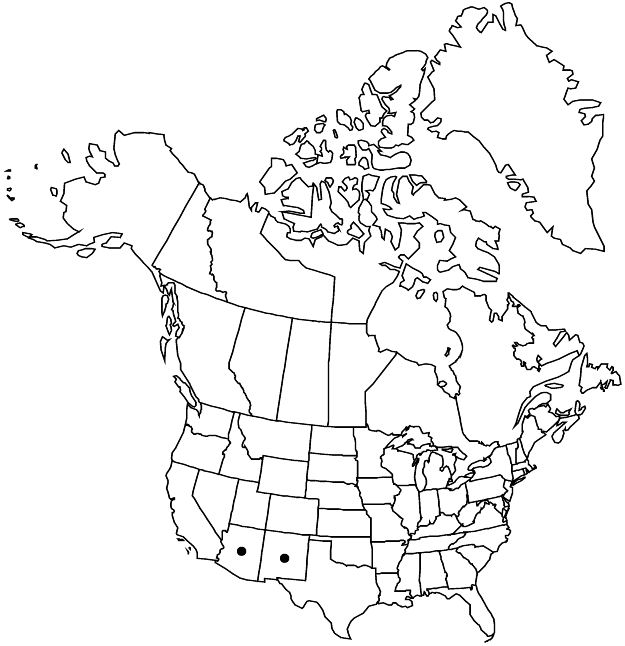Linum neomexicanum
Bot. Gaz. 6: 183. 1881. (as neo-mexicanum)
Herbs, annual, 15–60 cm, glabrous, sometimes glaucous. Stems erect or shortly decumbent at base, becoming erect, branched from near base. Leaves: usually only proximalmost opposite, sometimes to midstem, distal alternate, erect to ± spreading; stipular glands absent; blade of proximal leaves narrowly to broadly elliptic-oblanceolate, 10–15 × 1.5–2.5 mm, margins entire, not ciliate, apex subacute to acuminate; 1-nerved. Inflorescences slender thyrses. Pedicels 1–4 mm. Flowers: sepals persistent, linear-lanceolate to lanceolate, 3–5.3 mm, margins not scarious, inner ones conspicuously glandular-toothed, outer entire or very sparsely glandular-toothed, apex acute to acuminate; petals yellow, oblanceolate, 4–7 mm; stamens 3–5 mm; anthers 1–1.5 mm; staminodia absent; styles distinct, 1.5–3 mm; stigmas capitate. Capsules triangular-ovoid to broadly ovoid, 2.5–3.5 × 2.7–3.5 mm, apex obtuse, somewhat tardily dehiscing into 10, 1-seeded segments, segments persistent on plant, false septa incomplete, proximal margins ciliate. Seeds 2–2.5 × 1.1–1.3 mm. 2n = 26.
Phenology: Flowering (Mar–)Jul–Sep(–Nov).
Habitat: Pine and oak woodlands.
Elevation: (600–)1300–2900 m.
Distribution

Ariz., N.Mex., Mexico (Baja California, Chihuahua, Sonora).
Discussion
Within its range, Linum neomexicanum is the only species of Linum with yellow flowers and distinct styles. Its inflorescence is more slender than other species. The corollas are nearly rotate and the styles may be at nearly right angles to the flower axis, to spreading, or to ultimately ascending. J. R. McDill (2009) found that L. neomexicanum is most closely related to L. kingii.
Selected References
None.